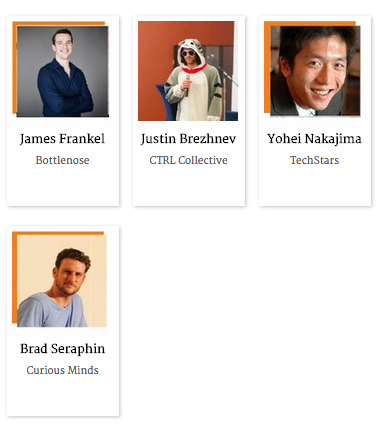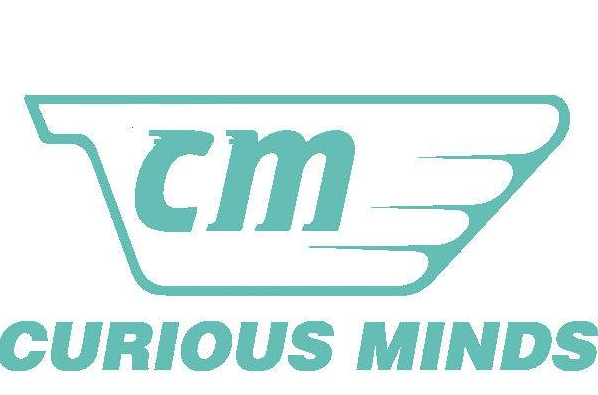
Photo courtesy IDEAS LA
By: Brittany Nicole La Hue
June 18 marked the first annual IDEAS Los Angeles conference, held at the Eli and Edyth Broad Stage here in Santa Monica. The tech and innovation conference came here to LA from Israel and Tel Aviv University to inspire people to think deeply, challenge perspectives, learn and network. Being in the heart of Silicon Beach, many of the panels and events focused on startups, branding and businesses.
One of the most useful panels for Silicon Beach startups and entrepreneurs was called “Starting Your Startup: Space, Network, Go!” Featuring Yohei Nakajima of Disney’s TechStars, Justin Brezhnev of new co-working space CTRL Collective, James Frankel of Bottlenose and Brad Seraphin of Curious Minds, the panel focused on what startups need to know when it comes to serving their target market, solving consumer problems and securing funding. Here are the top 5 messages I think entrepreneurs should take away from this informative discussion.

The expert panelists!
Make sure you’re actually solving a problem.
When was the last time you had an idea you were really excited about, only to have your excitement dashed when others were not enthusiastic about the idea? Or have you “invented” something only to later discover that it already exists? This panel stressed the importance of doing your due diligence in research. This means researching the industry and your niche, and avoiding making assumptions.
 Something many entrepreneurs do is project their own problems onto the market. You may see a problem and have an idea of how to fix it. But is this problem really an issue for anyone else, or just you? How many other people are also affected by this problem? And, most importantly, will people pay you to solve this problem? The panelists stressed the importance of having a community to bounce ideas off. Local co-working spaces, such as CTRL Collective, Cross Campus and General Assembly are good places to start. Brad Seraphin of incubator/accelerator/venture capital hybrid Curious Minds also warned against getting emotionally attached to your vision – you need to be able to be flexible enough to change to meet the needs of your market.
Something many entrepreneurs do is project their own problems onto the market. You may see a problem and have an idea of how to fix it. But is this problem really an issue for anyone else, or just you? How many other people are also affected by this problem? And, most importantly, will people pay you to solve this problem? The panelists stressed the importance of having a community to bounce ideas off. Local co-working spaces, such as CTRL Collective, Cross Campus and General Assembly are good places to start. Brad Seraphin of incubator/accelerator/venture capital hybrid Curious Minds also warned against getting emotionally attached to your vision – you need to be able to be flexible enough to change to meet the needs of your market.
Which brings us to…
Find your ideal consumer, and target them.
 You need to get out and actually talk to your customers. Market research, focus groups, interviews, etc. will help you understand your user base and what they are looking for. The panelists were also careful to differentiate between customers and users. Customers reach for their credit cards, but users may not pay you. You’ll need a combination of both to be successful.
You need to get out and actually talk to your customers. Market research, focus groups, interviews, etc. will help you understand your user base and what they are looking for. The panelists were also careful to differentiate between customers and users. Customers reach for their credit cards, but users may not pay you. You’ll need a combination of both to be successful.
Be cautious and picky when accepting capital.
Seraphin noted that “inability to execute is a huge cause of startup failure.” There are plenty of passionate people with great ideas out there who decide to quit their day jobs and pursue their idea full-time. However, it is nearly impossible to execute an idea well without capital.
Before you accept funding, get to know your customers (see above). Then you’ll have a better idea of which venture capital firms or angel investors are right for your vision and for your audience/user base. A hole that many entrepreneurs fall into is accepting money from friends and family. This gets tricky, because when you and the people investing in you are emotionally attached to an idea, you no longer have the flexibility to modify your idea or business model as needed. Seasoned investors have years of experience seeing which startups succeed and which fail, and they recognize the need to grow and change in order to continue to reach the target market. Working with them gives startups the advantage of expert judgment that friends and family may not have.
Find your “fairy godmother”
People in every industry need mentors to learn, grow and succeed. This is also true in startuplandia. A support team and a community is crucial to avoid the “me too” and “yes men” pitfalls of entrepreneurship. As Seraphin so uniquely phrased it, you need to “find your fairy godmother.” You need a mentor who hass been involved in several startups to keep you on track. He notes that many startups who have left the nest of Curious Minds return now and then to bounce ideas off mentors there. We’re all in this together, so get used to asking for help and opinions – often.

Finally, the number one tip I think startups should take away is that your time is your most valuable asset. Strike a balance between work, networking events and play. Do your research and make a strategy. Get away from the computer to network and attend startup events and mixers like IDEAS Los Angeles. These confabs of like-minded people can provide fertile ground for your development process. Sometimes a conversation with the right person can boost your success as much or more than many hours of work building and launching your startup.